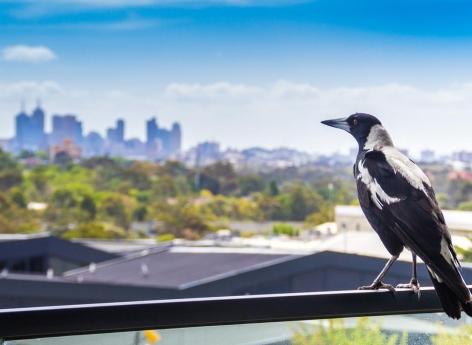
Breathing too much
You have the feeling that you are not getting enough oxygen, you break out in a sweat. The faster you breathe, the worse it gets. ‘I can’t breathe, I’m going to suffocate’, you think in panic. Do you recognize this situation? Then you probably suffer from hyperventilation. Tension and stress are often the underlying cause.
It is a very frightening feeling: the idea that you are going to suffocate because you do not get enough oxygen. Some people think of a heart attack and panic even more.
Not dangerous
Yet a hyperventilation attack is not dangerous. Usually you are there within ten minutes. But yes, that is of course easy to say. Ten minutes seems like an eternity when you have such an attack. In any case, here you can read more about what hyperventilation is and what you can do about it.
If you translate hyperventilation literally, that is breathing too much: ‘hyper’ is too much and ‘ventilation’ is breathing. That is exactly what happens during a hyperventilation attack. Your breathing is racing.
You normally breathe without thinking about it. You inhale oxygen (O2) and exhale carbon dioxide (CO2). Whatever you do, your breathing will adapt. This way you breathe very calmly and slowly during your sleep, because you then need less oxygen. When you do sports or other strenuous exercise, you breathe faster. Then your body asks for more oxygen.
Annoying complaints
With hyperventilation, something strange happens: you breathe faster and faster, while you do not need that extra oxygen. And then you soon suffer from all kinds of annoying complaints:
- shortness of breath and a feeling of tightness
- dizziness
- limp legs
- blurred vision
- to sweat
- the idea that you are going to faint
- an accelerated heartbeat
- chest pain
- a dry mouth
- tingling in your arms and legs
- cramp
The culprit is usually a lack of CO2. After all, you exhale carbon dioxide at breakneck speed. Too little CO2 causes the blood vessels to narrow and less blood goes to your brain. At such times, less oxygen reaches your organs and tissues. It has recently been shown that people who have enough CO2 can also hyperventilate. In that regard, more research is needed into the exact cause of the complaints.
Chronic hyperventilation
In addition to the attacks described above, there is also chronic hyperventilation. You are actually hyperventilating continuously, day and night. Usually you don’t even notice this yourself, because the symptoms are less severe than with an acute attack. But you still suffer from vague complaints such as fatigue, an anxious feeling, stabbing in your chest, concentration problems and headaches and stomachaches. It can take a while before the correct diagnosis is made.
Cause: tensions
But what is the cause of that agitated breathing? The answer: tension, anxiety, stress, psychological pressure and exhaustion. When you are extremely tense, your body produces stress hormones, such as adrenaline. As if you are preparing for a strenuous effort. This makes you breathe faster and increases your heart rate. Resulting in hyperventilation.
Just consider the following situations:
- Having to wait a long time in a cramped room with many people, while you can’t stand it.
- Having to go to a funeral or a hospital even though you find that terrifying.
- A period of enormous stress, as a result of which you have been on your toes for far too long.
- A tantrum or panic attack.
If you’ve had a hyperventilation attack once, you’re probably afraid of experiencing it again. Precisely because of this fear, the chance of hyperventilating only increases.
And if the attacks always come under the same circumstances, this can also lead to a phobia for that particular place or situation.
First aid
It’s difficult when you’re in a panic, but eventually you have to catch your breath, literally and figuratively. In order to breathe more calmly, it is necessary to relax. You can do this by mentally counting your breath: three seconds to inhale, six seconds to exhale, and so on.
Breathing into a pouch can also help. If you hold it in front of your nose and mouth, you breathe in the exhaled air again. Because that air is full of CO2, the worst complaints usually disappear quickly. You can also form a shell with your hands and breathe in it.
What can help further is simply holding your breath. Your breathing will then adjust itself again. Or create a distraction by talking to someone. You can also sing a song. You do not pay attention to your breathing while talking and singing.
Further treatment
If you often suffer from hyperventilation, it is smart to tackle the deeper causes. You may need psychological help with this. In any case, it is good to keep track of the situations in which you suffer from panic attacks.

















